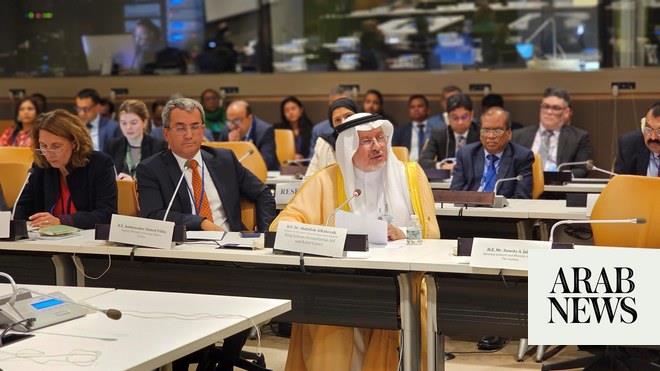
GENEVA: UN humanitarian projects face a record funding gap this year, with only a third of the required $48.7 billion secured so far as global needs outpace pledges, a spokesman for the UN Office for the Coordination of Humanitarian Affairs said.
The money is needed to help around 204 million people worldwide as armed conflict and climate change, such as the war in Ukraine and the drought in the Horn of Africa, emerge as key drivers of “mega crises” that threaten the livelihoods of whole communities.
“More than halfway through the year, the funding shortfall is $33.6 billion, our biggest funding gap ever,” said Jens Laerke, OCHA spokesman.
“The needs in the world are rising much faster than the donor funding is coming in,” he added.
More than halfway through the year, the funding shortfall is $33.6 billion, our biggest funding gap ever.
Jens Laerke, OCHA spokesman
So far $15.2 billion has been collected by the mid-year mark, also a record, Laerke said, in a year of soaring humanitarian needs.
According to OCHA’s website, the US is the top donor, contributing just over $8 billion, while the World Food Programme was the largest recipient.
The nearly $50 billion needed includes all the UN coordinated appeals worldwide, like the annual humanitarian response plans in the Democratic Republic of the Congo and Syria, as well as flash appeals in Ukraine and regional appeals for refugees in Afghanistan.
The money is meant for all UN humanitarian agencies and some NGOs, but does not cover appeals from the International Federation of Red Cross and Red Crescent Societies and the ICRC because they have independent appeal processes, Laerke said.
The UN’s humanitarian agency earlier said nearly 900,000 people in the Democratic Republic of Congo had been displaced since the start of the year amid rebel fighting in the country’s east.
The UN Office for the Coordination of Humanitarian Affairs said in a report that more than 877,000 people had been displaced between January and June.
Over 446,000 people had also returned home during that period, OCHA said.
There are currently 4.86 million people displaced within the DRC, according to OCHA, with women representing 51 percent of that number.
“More than 80 per cent of the displacement is due to armed attacks and clashes,” the report said.
The majority of displaced people are located in Congo’s turbulent east, a mineral-rich region plagued by over 120 armed groups.
Late last year, the M23 rebel group resumed fighting in eastern Congo after lying mostly dormant for years. It has since captured swaths of territory, including the strategic border town of Bunagana.
The clashes have destabilized regional relations in central Africa, with DRC accusing its smaller neighbour Rwanda of backing the militia.
Despite denials from the Rwandan government, an unpublished report for the UN seen by AFP also pointed to Rwandan involvement.












